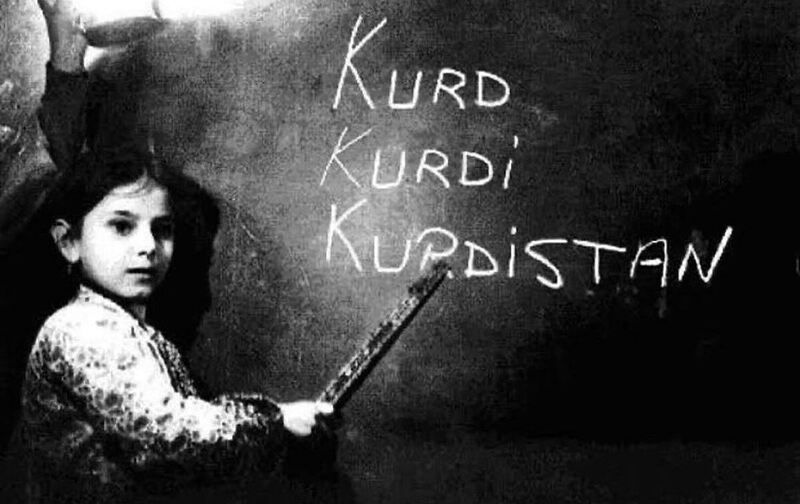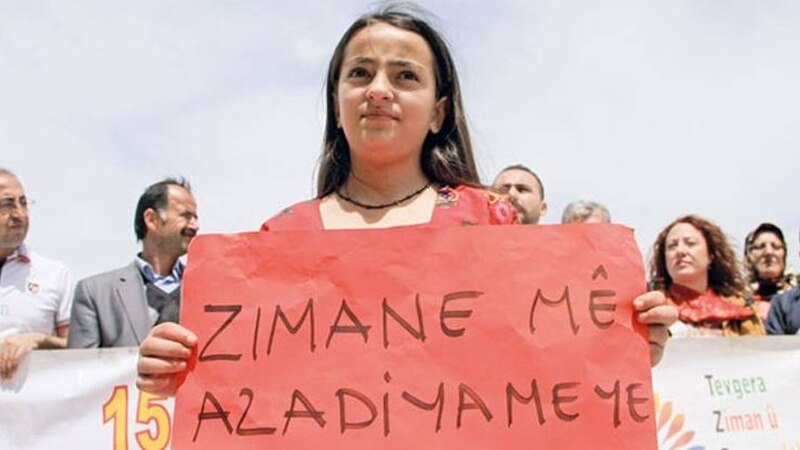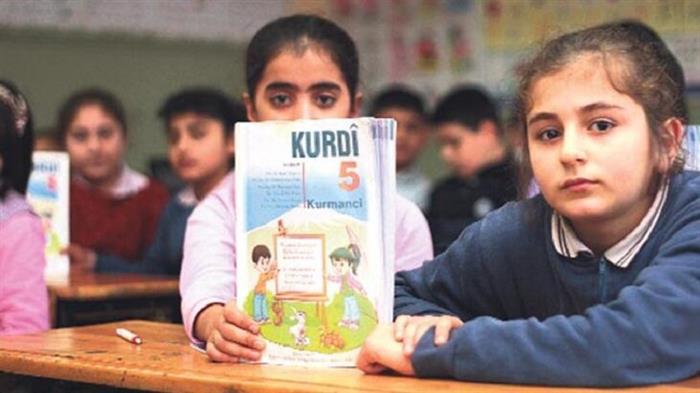Persian nationalism defines itself within the framework of "Iranian geopolitical sovereignty, Persian language sovereignty, and Persian ethnic hegemony" and tries to impose "Iranianism" as a political, social, and cultural imperative on different nations in Iranian geopolitics.
In fact, the “Persian government” is imposed on the Iranian individual through the Persian language as a political order within the framework of Iranianism. Persians also try to mislead the public opinion of non-Persian nations by historicizing and culturalizing the political order to erase the legitimacy of the struggle for rights, identity, and nationalism of other nations, including the Kurds, and reduce the ugliness of its dictatorship. They are trying to prevent the fragmentation of Iran by historicizing Iran as a geopolitical entity, and by historicizing Persian as a historical imperative, they are trying to prevent the development and emergence of other languages, including Kurdish. On the one hand, they try to politicize all cultural, identity, and linguistic phenomena to secure and develop their hegemony. On the other hand, they try to erase the shame of their authoritarianism through the political erasure of these phenomena.

Duty and Functions of Language
Language, as a mental capacity for thinking, is born in humans and produces human beings. Human grows, develops, and dies with language. Language is the framework of human manifestation, the definition of human beings, and human beings are known and introduced through language. It can be said that humans and language are a genus so neither language exists without humans nor humans exists without language. Through language, one defines itself and the other, defines boundaries, acts and reacts, takes attitudes, and expresses feelings.
Language is a structured system of communication among people. In fact, language conveys a purpose, desire, or concept through words, signs, sentences, and writing. It can be said that language is first a context in which meaning, purpose, and thought are nurtured and then conveyed through language, as “visual signs”.
The three important characteristics of language are reproductive capacity, high social class, and the social contract (i.e., it is not an essential, guaranteed, and permanent phenomenon). One of the most important modern thoughts is "nationalism" which is nurtured within language and through language as a sign in the form of a structured system. Because language reflects the overall experience of a nation and plays an important role in transmitting national identity. Language is the product of elements that cannot be translated because it contains the original and specific perspective of a particular environment in which the true educated subject lies.
Benedict Anderson believes that nations appear first in language rather than in blood. He further believes that nations are cultural products that emerged in the form of local languages in the late eighteenth century, like the development and securing of local languages and the decline of church languages were the context for the emergence of nations.

The Persian Language a political imposition
The Persian language is an important pillar of Persian nationalism, mental and apparent Iran, and Persian power. In fact, the Persian language as a collection of mental phenomena in the sense of identity thought, and view, alongside apparent phenomena such as signs, words, and sentences, is the source of a national society and the producer of a broad national society. In short, it can be said that the Persian language is the most important and main basis for the emergence of Iranian nationalism and the producer of an authoritarian, unjust, and oppressive regime.
Persian is an occupying language, a mental context, and a framework in which Persian meaning and understanding have been produced. Iranian nationalism and pan-Iranism as ideologies were first produced in language as an ability to think, a psychological phenomenon, a context for the education of thought, and an apparent phenomenon containing apparent signs. Therefore, on the one hand, it contains a framework of Persian meaning and understanding, and on the other hand, it is a tool for imposing Persian thought, Persian identity at the cultural and social level, and Persian hegemony, sovereignty, and political power, the person who has been emptied of their local content through the imposition of the Persian language, has been alienated from the local cultural and cognitive environment and has been infused with foreign phenomena.

The Kurdish language, The Language of Freedom
The Kurdish language is the language of freedom, the language of ensuring the identity, and independence of the Kurdish individual, the framework of self-expression, and the boundary that separates it from the stranger other. In fact, the Kurdish language as the ability to think in Kurdish is a platform for the emergence of Kurdish itself. The Kurdish language is the foundation of the conscious, thoughtful, and responsible behavior of the Kurdish people. It can be said that since language is the human ability to understand; the Kurdish language is the human ability to understand the Kurdish self as an individual and nation. This means the ability of the Kurdish individual to prevent occupation and the ability to liberate and freedom.
Herder believes that language guarantees historical and cultural continuity, and the Kurdish language as a context and opportunity for the historical and cultural continuity of Kurds, as an individual and nation, has an important role.
Kurdish nationalism as a reaction against the occupying one is first linguistic nationalism, that is, although Kurds are divided between three foreign languages and three foreign languages have tried to impose anti-Kurdish and non-Kurdish culture, values, and identity. Through the Kurdish language, Kurdish nationalist leaders have tried to unite and integrate Kurds. They have tried to break the artificial visual, linguistic, and cultural boundaries imposed through the Kurdish language. Although Kurdish nationalism may have often remained confined to these artificial boundaries, like trying to secure the right to self-determination within these artificial geopolitics, they are all interconnected by the Kurdish language. It means Kurdish nationalism of all parts has produced a unified Kurdish world. In fact, the Kurdish language has been the main and continuous element of Kurdish nationalism in all parts of Kurdistan.
Before the emergence of Kurdish nationalism and Kurdish thought as a nation, Kurdistan was a fragmented society, but the Kurdish language was able to build a bridge over all tribes and Kurdish tribal society with all its differences and tribal boundaries within the nation Kurds to gather together. Therefore, one of the most important contexts in which Kurdish nationalism was nurtured and the context for the development and ensuring of Kurdish nationalism was the Kurdish language.
The first contexts for the emergence of Kurdish nationalism were: Kurdish poetry, verse, and epic stories that flourished in the language and were transferred to other generations through the Kurdish language. They were also transferred to other levels through the Kurdish language, and thus nationalism has crossed the ages like a stream among the different fronts of Kurdish society. The publication of the first Kurdish newspaper in Cairo in Kurdish, along with the development of education in Kurdish, played an important role in developing and ensuring Kurdish nationalism. Therefore, it can be said that Kurdish political nationalism in Kurdistan first appeared as linguistic and cultural nationalism and later reached the political level. In other words, the main principles of Kurdish political nationalism are linguistic nationalism and cultural nationalism.









